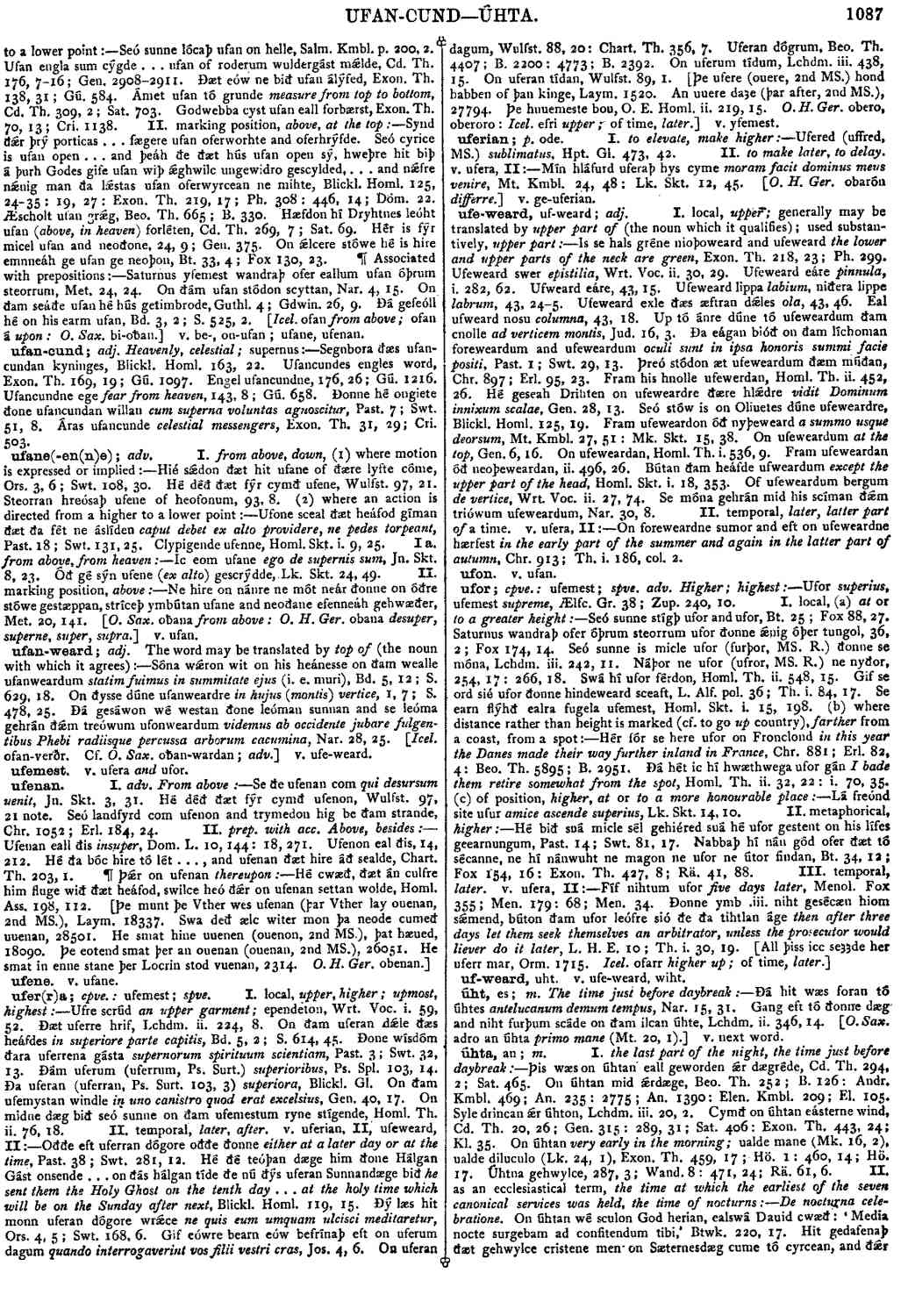úhta
- noun [ masculine ]
-
Þis wæs on úhtan eall geworden ǽr dægréde,
- Cd. Th. 294, 2 ;
- Sat. 465.
-
On úhtan mid ǽrdæge,
- Beo. Th. 252 ;
- B. 126: Andr. Kmbl. 469 ;
- An. 235: 2775 ;
- An. 1390: Elen. Kmbl. 209 ;
- El. 105.
-
Syle drincan ǽr úhton,
- Lchdm. iii. 20, 2.
-
Cymð on úhtan eásterne wind,
- Cd. Th. 20, 26 ;
- Gen. 315: 289, 31 ;
- Sat. 406: Exon. Th. 443, 24 ;
- Kl. 35.
-
On úhtan
very early in the morning;
ualde mane (Mk. 16, 2), ualde diluculo (Lk. 24, 1),
- Exon. Th. 459, 17 ;
- Hö. 1: 460, 14 ;
- Hö. 17.
-
Úhtna gehwylce,
- 287, 3 ;
- Wand. 8: 471, 24 ;
- Rä. 61, 6.
-
On úhtan wé sculon God herian, ealswá Dauid cwæð: 'Media nocte surgebam ad confitendum tibi,'
- Btwk. 220, 17.
-
Hit gedafenaþ ðæt gehwylce cristene men on Sæternesdæg cume tó cyrcean, and ðǽrǽfensang gehýran, and on úhtan ðone úhtsang,
- L. E. G. 24 ;
- Th. ii. 420, 35.
-
Eallum cristenum mannum is beboden ðæt hí ealne heora líchoman seofon síþum gebletsian mid Cristes róde tácne, ǽrest on ǽrnemorgen ... seofoþan síþe on úhtan,
- Blickl. Homl. 47, 19.
Bosworth, Joseph. “úhta.” In An Anglo-Saxon Dictionary Online, edited by Thomas Northcote Toller, Christ Sean, and Ondřej Tichy. Prague: Faculty of Arts, Charles University, 2014. https://bosworthtoller.com/32479.
Checked: 1